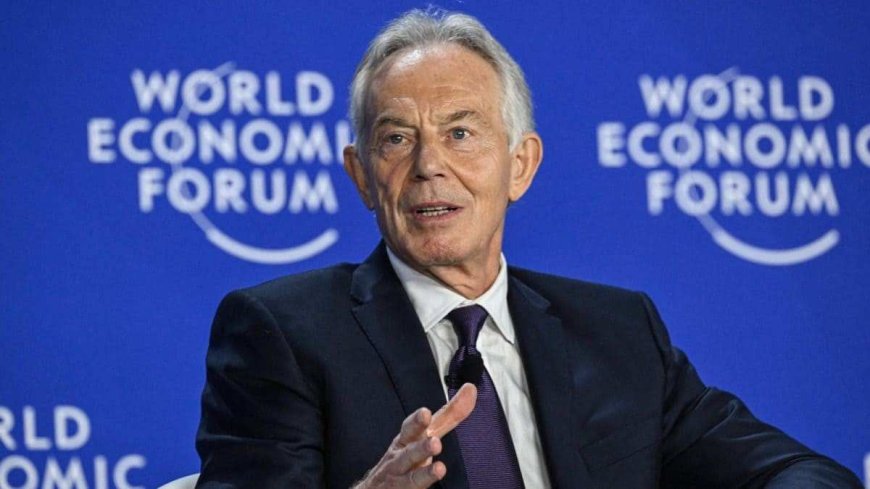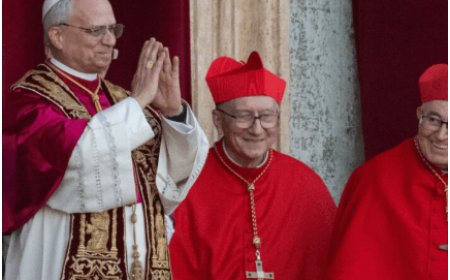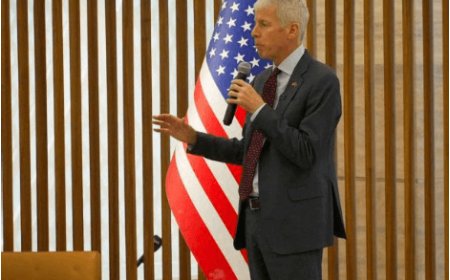Tony Blair’s Dramatic Return: Controversial Role in Bold US Plan for Gaza’s Future
Tony Blair is back in Middle East diplomacy, tapped to lead Gaza's reconstruction in a new US peace plan. We analyze his controversial legacy and the challenges ahead.

Tony Blair's Return: Controversial Role in New US Plan for Gaza's Future
Former British Prime Minister Tony Blair has been thrust back into the spotlight of Middle East diplomacy, appointed to a prominent role in a new U.S. plan for Gaza's reconstruction and future governance. His return to a familiar arena, however, is being met with a mix of hope and deep skepticism, as his long and complicated history in the region is seen as both an asset and a significant liability.
A Return to Familiar Terrain
Blair is no stranger to Middle East peace efforts. After leaving office in 2007, he served for eight years as the Middle East envoy for the Quartet (the U.S., UN, EU, and Russia). During that time, he worked to mediate between Israel and the Palestinians, though his tenure yielded few tangible breakthroughs.
His new role emerges from a U.S. initiative that proposes placing Gaza under international oversight. The plan includes a multinational security force and a proposed "Board of Peace," which would be jointly led by the U.S. administration and Blair, tasking him with managing the strip's administration and massive reconstruction.
Strengths: Experience and Stature
Proponents point to several factors that make Blair a credible choice for this monumental task:
-
Deep Experience: His years as Quartet envoy gave him an intimate understanding of the region's complex political landscape.
-
Global Connections: He maintains high-level access to leaders across the Arab world, Israel, Europe, and the United States.
-
Proven Track Record: His successful brokering of the 1998 Good Friday Agreement in Northern Ireland is often cited as evidence of his diplomatic skill.
His involvement is intended to lend credibility and global stature to the U.S. plan, potentially smoothing coordination between the many stakeholders involved.
Weaknesses: A Controversial Legacy
Despite his experience, Blair's appointment is highly controversial, primarily due to one decision: his support for the 2003 U.S.-led invasion of Iraq.
-
The Iraq War Shadow: A 2016 UK inquiry concluded the invasion was based on flawed intelligence and that peaceful options had not been exhausted. For many in the Middle East, particularly Palestinians, Blair is a figure associated with a destructive war.
-
Mixed Results as Envoy: His previous term as Quartet envoy is widely viewed as having failed to achieve significant progress, with one regional analyst bluntly calling it a "colossal failure."
-
Domestic Polarization: In the UK, Blair remains a deeply divisive figure, and his new role has already drawn criticism from across the political spectrum.
Regional Skepticism and the Road Ahead
The announcement has been met with suspicion on the ground in Gaza. Many Palestinians openly reject his involvement. "This man has the blood of Iraqis on his hands," said one displaced resident, capturing a common sentiment. Others question why an international figure is being chosen over a Palestinian leader.
While UK Prime Minister Keir Starmer welcomed the broader U.S. plan, he notably avoided praising Blair's specific role.
Conclusion: Walking a Diplomatic Tightrope
Tony Blair's return to Middle East diplomacy is a high-stakes gamble. His experience and clout could be invaluable in coordinating the logistical and political nightmare of rebuilding Gaza. However, the deep-seated distrust stemming from the Iraq War presents a formidable obstacle to building the legitimacy and trust necessary for success.
The central question remains: Can Tony Blair transcend his controversial past to help forge a viable future for Gaza, or will his history ultimately undermine the very peace he seeks to build? The outcome will define this latest chapter of his diplomatic career.
What's Your Reaction?
 Like
0
Like
0
 Dislike
0
Dislike
0
 Love
0
Love
0
 Funny
0
Funny
0
 Angry
0
Angry
0
 Sad
0
Sad
0
 Wow
0
Wow
0














































